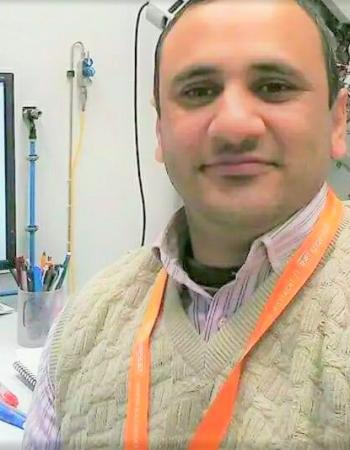Novel Electrochemical Test Bench for Evaluating the Functional Fatigue Life of Biomedical Alloys
Ijaz, M. F. . 2017
The aim of the present work was first to develop and validate a test bench that simulates the in vitro conditions to which the biomedical implants will be actually subjected in vivo. For the preliminary application assessments, the strain-controlled fatigue tests of biomedically pure Ti and Ti–Nb–Zr alloy in simulated body fluid were undertaken. The in situ open-circuit potential measurements from the test bench demonstrated a strong dependence on the dynamic cycling and kind of material under testing. The results showed that during fatigue cycling, the passive oxide film formed on the surface of Ti–Nb–Zr alloy was more resistant to fatigue degradation when compared with pure Ti. The Ti–Nb–Zr alloy exhibited prolonged fatigue life when compared with pure Ti. The fractographic features of both materials were also characterized using scanning electron microscopy. The electrochemical results and the fractographic evidence confirmed that the prolonged functional fatigue life of the Ti–Nb–Zr alloy is apparently ascribable to the reversible martensitic phase transformation.

Surgeons face a significant challenge due to the heat generated during drilling, as excessive temperatures at the bone-tool interface can lead to irreversible damage to the regenerative soft…

The quest for lightweight, high-performance structural materials for demanding applications such as in the fields of automotive, aerospace, and other high-tech and military industries pushes the…

Falling on the ground can cause serious injuries such as bruises, broken bones, head injuries, etc. Annually, 684,000 individuals die globally fromfalling to the ground. There are more than 37…

